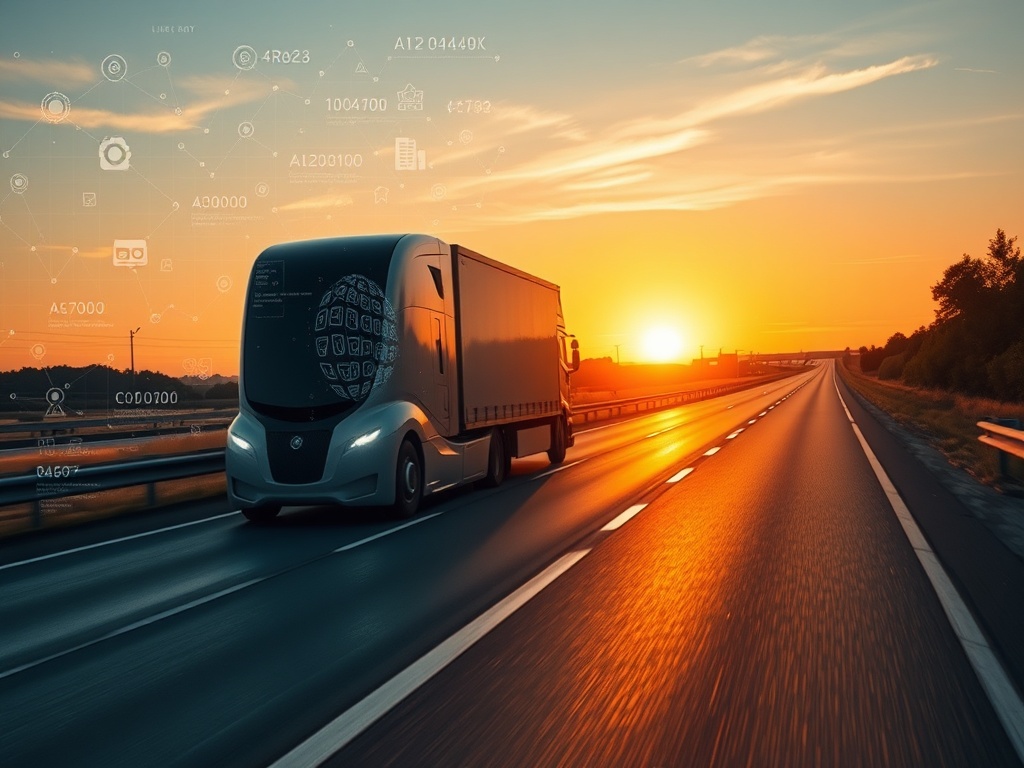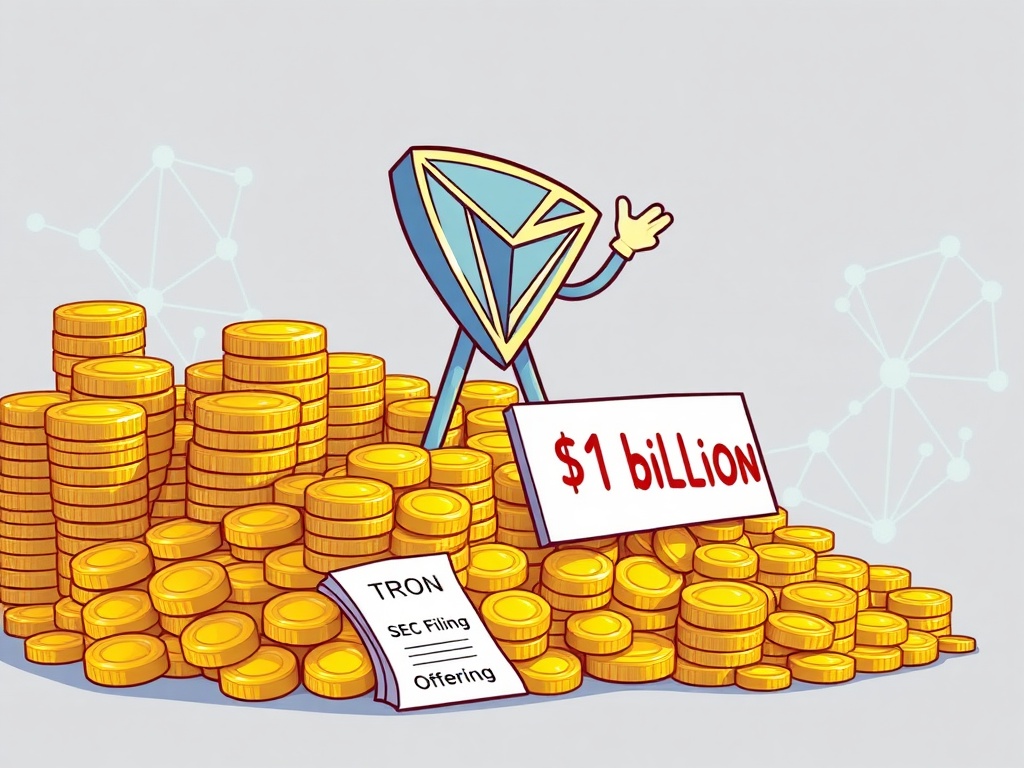BitcoinWorld

Self-driving Trucks: Lior Ron’s Pivotal Move to Waabi Ignites Autonomous Future
In a significant development poised to reshape the landscape of logistics and autonomous technology, Lior Ron, the highly influential CEO of Uber Freight, has announced his departure to assume the role of Chief Operating Officer at Waabi, a pioneering self-driving startup. This strategic move signals a powerful acceleration in the race for commercializing driverless transportation, a sector that holds immense promise for efficiency gains and safety improvements, resonating deeply with the innovative spirit often found in the cryptocurrency and broader tech community. The transition of such a seasoned leader to a cutting-edge autonomous vehicle company like Waabi underscores the industry’s rapid maturation and its magnetic pull for top talent.
Lior Ron’s Strategic Leap: A New Era for Waabi?
The appointment of Lior Ron as Waabi’s COO is far more than just a personnel change; it’s a profound statement on the future trajectory of autonomous freight. Ron, an autonomous vehicle industry veteran, brings a wealth of experience from his tenure at Uber Freight, where he successfully scaled the digital marketplace connecting shippers with carriers into a formidable enterprise with billions in revenue. His proven ability to transform nascent ideas into large-scale commercial successes is precisely what Waabi needs as it gears up for its ambitious launch of driverless trucks on public highways later this year.
Ron’s history with Waabi’s founder and CEO, Raquel Urtasun, runs deep. Their professional paths intertwined previously at Uber, where Ron co-founded the self-driving truck company Otto (later acquired by Uber in 2016), and Urtasun served as chief scientist, spearheading the ride-hail firm’s self-driving research. This shared history and mutual respect suggest a powerful synergy at Waabi. Urtasun herself highlighted Ron’s unparalleled expertise: “He will lead the go-to-market strategy, expanding key partnerships, and really bringing Waabi from the phase that we’ve been in to commercialization at scale.” This endorsement speaks volumes about the impact Ron is expected to have on Waabi’s aggressive growth plans. His role will be pivotal in translating Waabi’s advanced technological capabilities into widespread commercial adoption, a critical step for any startup in this capital-intensive industry.
While Ron transitions to Waabi, he will maintain a connection with his former company, serving as Uber Freight’s chairman. The leadership void at Uber Freight will be filled by Rebecca Tinucci, who previously spent six years building Tesla’s charging network. This ensures continuity and leverages Tinucci’s experience in scaling critical infrastructure, a valuable asset for Uber Freight’s ongoing evolution.
Waabi’s AI-First Advantage: Revolutionizing Autonomous Vehicles
At the core of Waabi’s strategy is its distinctive “AI-first” approach to scaling autonomy, a methodology that Raquel Urtasun champions as the key to doing “more with fewer resources and in less time than competitors.” This efficiency is a significant competitive advantage in the highly capital-intensive autonomous vehicle sector, which has seen several promising startups, such as TuSimple and Embark, falter. Waabi’s ability to achieve significant milestones with a comparatively lean funding of $287.7 million (the bulk from a $200 million Series B in 2024) stands in stark contrast to competitors like Aurora, which has raised nearly $3.46 billion.
What exactly does Waabi’s AI-first approach entail? It primarily revolves around “Waabi World,” a closed-loop simulator that serves as the company’s virtual testing and training ground. This sophisticated simulator allows Waabi to:
- Virtually Test Software: Engineers can rigorously test their self-driving software in a myriad of simulated scenarios, from routine driving conditions to rare edge cases, without the inherent risks and costs of real-world testing.
- Teach AI in Real-Time: The simulator isn’t just for testing; it actively teaches the AI system, accelerating its learning curve and improving its decision-making capabilities.
- Overlay Virtual Environments: More recently, Waabi has innovated by taking its simulator to the test track, overlaying virtual environments onto real-world driving conditions. This allows them to simulate complex scenarios like accidents, construction zones, and adverse weather without actual risk, providing an invaluable bridge between virtual and physical testing.
This innovative approach has enabled Waabi to rapidly reach “feature complete,” meaning they have all the necessary components to remove the human driver, now focusing on final performance improvement and validation. The company is confidently on track for its driverless launch by the end of the year, marking the true commencement of its commercialization phase for autonomous vehicles.
The Road Ahead for Self-Driving Trucks: Commercialization and Impact
The impending launch of Waabi’s driverless operations signals a critical juncture for the commercialization of self-driving trucks. The demand for this technology is palpable, as Lior Ron noted during his time at Uber Freight, regularly meeting with chief supply chain officers and major carriers who “could not wait” for autonomous solutions. This widespread industry eagerness is driven by several factors:
- Driver Shortages: The trucking industry faces a persistent shortage of qualified drivers, making autonomous solutions an attractive long-term answer to capacity challenges.
- Operational Efficiency: Driverless trucks have the potential to operate 24/7, with fewer mandated breaks, leading to significant improvements in delivery times and asset utilization.
- Cost Reduction: While initial investment is high, the long-term operational cost savings from reduced labor, fuel optimization (through AI-driven driving), and fewer accidents can be substantial.
- Enhanced Safety: AI-driven systems are designed to be consistently vigilant and adhere strictly to traffic laws, potentially reducing human error-related accidents.
Waabi plans to launch its operations in Texas, which has rapidly emerged as the autonomous freight capital of the U.S. This state offers a favorable regulatory environment and extensive highway networks suitable for long-haul trucking. While specific routes and launch partners are yet to be disclosed, the startup is actively working with Volvo Autonomous Solutions to develop and deploy custom-built autonomous vehicles. This partnership with a major truck manufacturer underscores the industry’s collaborative effort to bring these technologies to market.
Ron is particularly enthusiastic about the prospect of seamlessly integrating Waabi’s technology into customer operations. He highlighted a feature that would enable Waabi’s trucks to drive straight to customer depots, circumventing the need to construct specialized terminals for a hybrid setup. This “dock-to-dock” autonomy could dramatically simplify logistics for businesses, providing a truly commercial-ready solution that meets the immediate needs of carriers and shippers. This vision for end-to-end autonomous logistics is a significant leap forward, promising to unlock unprecedented efficiencies in the supply chain.
Uber Freight’s Evolving Strategy in the Autonomous Landscape
Even with Lior Ron‘s departure, Uber Freight remains steadfast in its commitment to integrating autonomous trucking technology into its digital marketplace. Ron himself confirmed that Uber’s partnership with Waabi remains unaffected by his transition, emphasizing the long-term strategic alignment between the two entities. Uber Freight’s model, which connects shippers with a vast network of carriers, is ideally positioned to become a central hub for autonomous freight. By forging partnerships with leading autonomous vehicle startups like Aurora Innovation and Waabi, Uber Freight aims to future-proof its platform and offer cutting-edge solutions to its clientele.
The appointment of Rebecca Tinucci as the new head of Uber Freight signals a continuation of this strategic vision. Her background in building out Tesla’s extensive charging network demonstrates a strong understanding of large-scale infrastructure deployment and operational excellence, skills that will be crucial as Uber Freight navigates the complexities of integrating driverless trucks. Uber Freight’s role will likely evolve to facilitate the adoption of autonomous solutions, potentially offering services that manage the dispatch, routing, and optimization of both human-driven and autonomous fleets. This hybrid approach allows for a gradual, seamless transition as autonomous capabilities mature and scale.
The digital marketplace created by Uber Freight is a powerful enabler for autonomous technology. It can provide the necessary volume and network effects to make driverless operations economically viable. By connecting autonomous fleet operators with shippers, Uber Freight can accelerate the adoption cycle, making it easier for businesses to access and utilize these advanced transportation methods. This symbiotic relationship ensures that as autonomous technology advances, the infrastructure for its widespread use is already in place, ready to scale.
Lior Ron’s move to Waabi marks a transformative moment for the autonomous trucking industry. His proven leadership, combined with Waabi’s innovative AI-first approach and advanced simulator technology, positions the company as a formidable player in the race to commercialize driverless transportation. As self-driving trucks prepare for their imminent launch in Texas, the ripple effects will undoubtedly be felt across the logistics sector, promising a future of enhanced efficiency, safety, and operational capabilities. This strategic alignment of talent and technology is set to accelerate the autonomous revolution, bringing us closer to a future where driverless vehicles are a common sight on our highways, fundamentally reshaping how goods are moved across the globe.
To learn more about the latest AI market trends, explore our article on key developments shaping AI features.
This post Self-driving Trucks: Lior Ron’s Pivotal Move to Waabi Ignites Autonomous Future first appeared on BitcoinWorld and is written by Editorial Team





